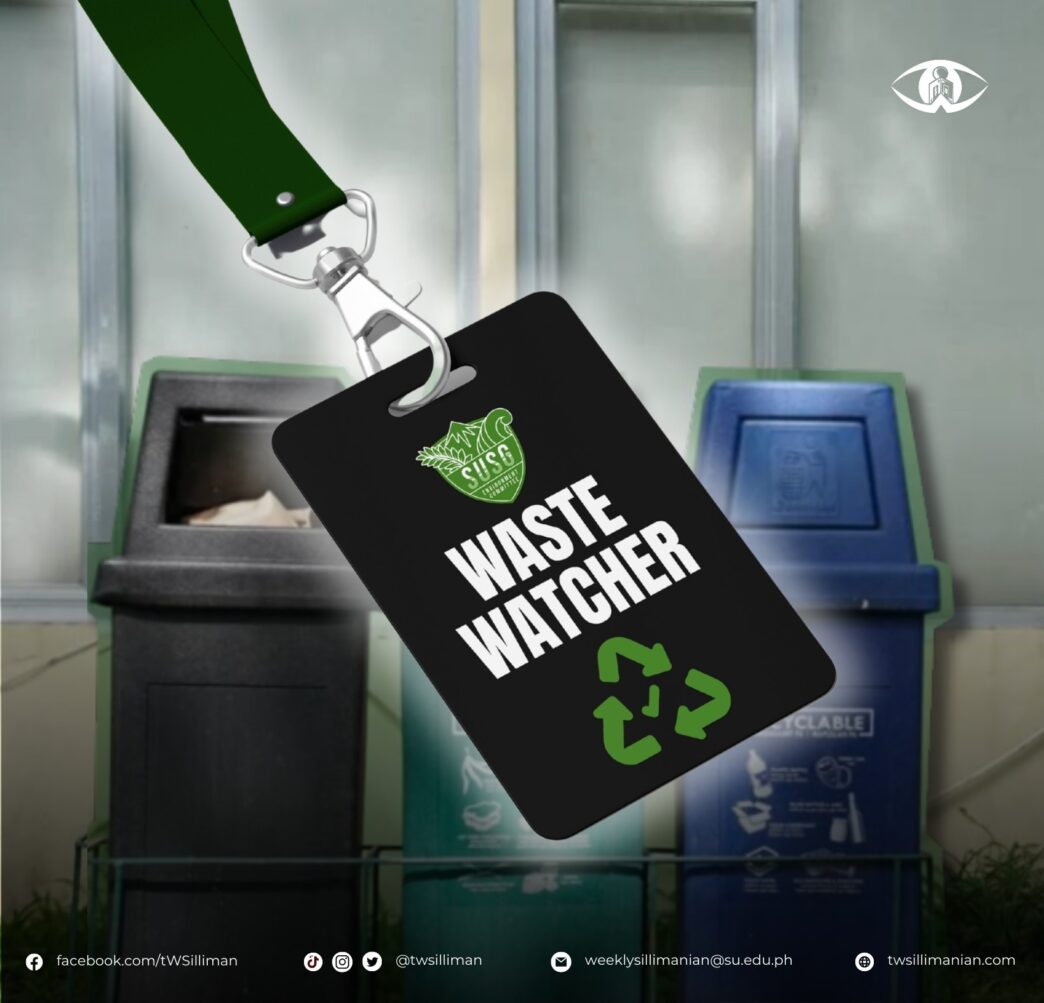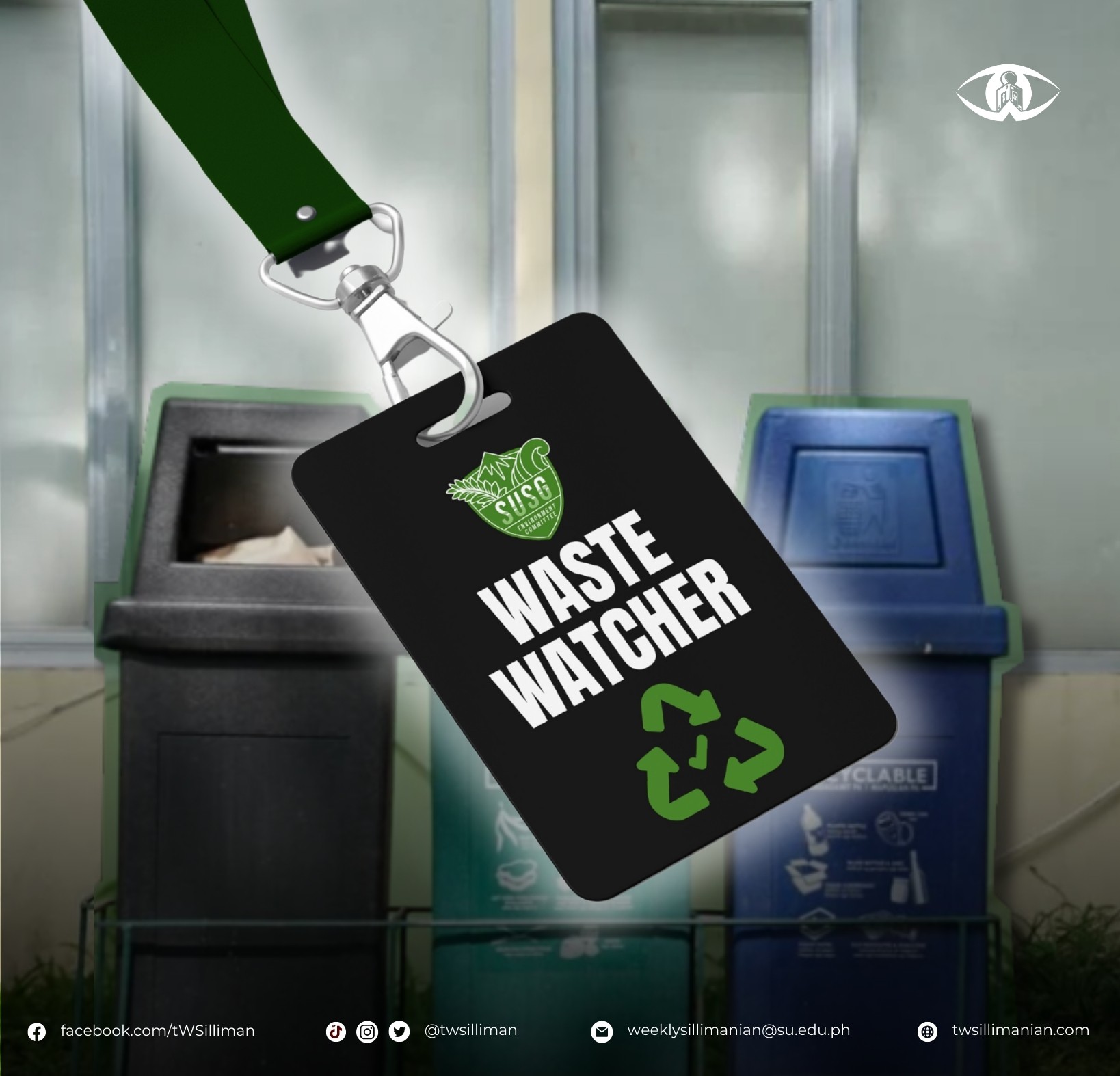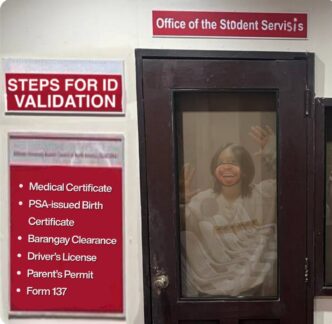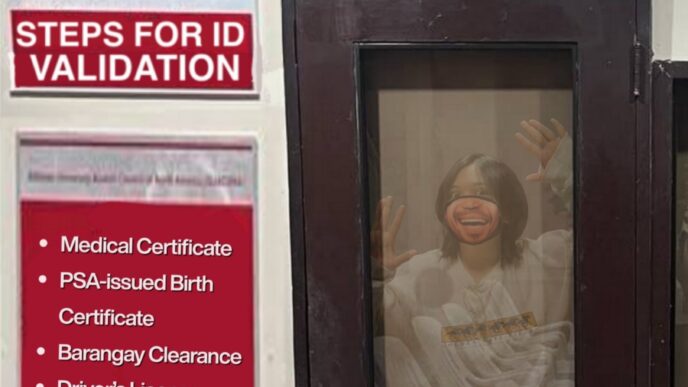By Lara Charmaine Lagorra
Silliman University is recognized for its strong dedication to environmental conservation and sustainability. A key initiative that defines this commitment is the Zero-Waste and No-Plastic Policy, which strictly bans the use of single-use plastics and non-recyclable containers throughout the campus.
Beyond this enforcement, the SUSG Environment Committee (EnviroCom) assumes a different role—where they serve as environmental advocates, fostering sustainable habits and a culture of care among students.
Their approach highlights not just enforcement, but also the importance of empowering, educating, and inspiring fellow Sillimanians to take ownership of their environmental impact through everyday actions, while focusing on what they can control through active participation of culture towards playing a part in the university.
It is easy to say that small efforts do not change the overall narrative that plastics will always be present, and some may find this frustrating. However, these watchful advocates offer more than just policies—they provide encouragement where small acts of change can make a real difference for the environment.
Some of the committee’s initiatives are awareness drives and creative campaigns; reminding students that caring for the environment should not be an inconvenience but a responsibility that everyone must take on.
Alyssa Danielle Pangan, chairperson of EnviroCom, along with Mary Arabia and Pil Lantao, advocates for the committee’s supportive role in the administration’s policy.
“Fostering sustainable habits among students can only be achieved when the students themselves know why these habits are of great importance. Sustainability is not just a habit, it is a way of life,” they say.
EnviroCom promotes that sustainability benefits not only to the university’s reputation but also enhances the overall campus experience for everyone. Thus, the committee continuously reminds and educates students through ongoing engagements and awareness campaigns that sustainability is meant for the betterment of all.
The committee also strategizes on encouraging eco-consciousness, such as incentivizing student organizations who help implement measures that reduce single-use plastics and incorporate sustainability in their activities with organizational points.
This incentive program motivates groups to adopt greener practices while fostering accountability—not just compliance with policies.
The vision of Silimanians as “small changers” reflects a commitment to a greener campus, where even small actions like proper waste segregation and choosing sustainable materials contribute to a larger culture of care.
Although not everyone may fully embrace these practices, a dedicated few lead by example, showing that sustainability is less about rules and more about responsibility. By shifting the mindset from inconvenience to contribution, this movement inspires students to make mindful choices that protect the environment and foster a shared sense of care for the campus and future generations.
“Even tiny actions like refusing a straw or bringing a reusable bag matter when done consistently […] these small choices, multiplied across the campus, create a culture where caring for the environment feels natural and collective,” they emphasize.
However, EnviroCom does not have jurisdiction over private establishments within the campus that have single-use plastic items. Similarly, the committee cannot fully enforce restrictions on items brought in by students, faculty, and staff.
As a result, the committee’s influence is limited to requesting action from the offices responsible for these establishments, while it cannot control individual purchases or items kept by students on campus.
“What really matters is the action and intervention of the higher administration, because they hold the decision-making power over these establishments. We continue to document issues, forward them to the proper offices, and create awareness so that pressure for change remains alive,” they remark.
By leading through example and celebrating eco-friendly students and organizations, the policy becomes less about enforcement and more about encouraging everyone to understand that their choices matter. Their focus, then, is more “what I can contribute,” wherein the no-plastic policy transforms into a shared movement of care and responsibility.
Looking into the future, the committee aims to remain a key accountability partner to the university administration in advancing its commitment to zero-waste and plastic-free practices.
Recognizing that this effort requires collaboration, the committee also plans to work closely with the Student Organizations and Activities Division and academic organizations. They intend to integrate environmental standards into campus events, sponsors, and concessionaires while supporting organizations in adopting more sustainable practices.
“We all have a choice. You don’t need to do everything perfectly, but you can do something. By making small changes, you’re already helping build a culture of care in our campus. Let’s not add to the problem—let’s walk together in becoming part of the solution,” they assert.
Together, the administration’s implementation and the committee’s supportive efforts create a balanced approach: policies that ensure discipline, paired with encouragement that inspires a sense of responsibility over convenience in order to care for the environment.
In this balance, Sillimanians can learn from the committee’s advocacy, discovering what it means to be small but active changers—proving that even the smallest habits, when done collectively, can make a lasting difference.














